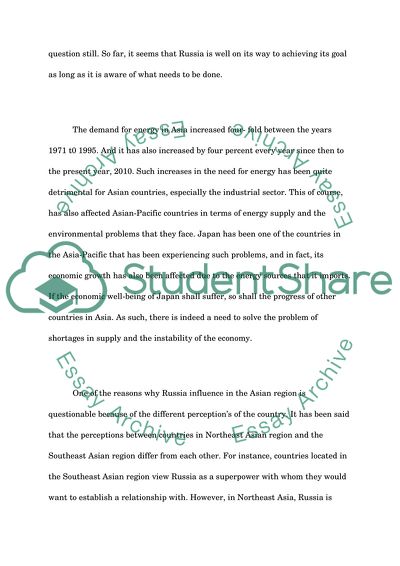Cite this document
(Russia Influence in the Asia Pacific Region Case Study, n.d.)
Russia Influence in the Asia Pacific Region Case Study. https://studentshare.org/macro-microeconomics/1734235-assess-whether-russia-been-successful-in-using-its-resources-to-maximise-its-influence-in-the-asia-pacific
Russia Influence in the Asia Pacific Region Case Study. https://studentshare.org/macro-microeconomics/1734235-assess-whether-russia-been-successful-in-using-its-resources-to-maximise-its-influence-in-the-asia-pacific
(Russia Influence in the Asia Pacific Region Case Study)
Russia Influence in the Asia Pacific Region Case Study. https://studentshare.org/macro-microeconomics/1734235-assess-whether-russia-been-successful-in-using-its-resources-to-maximise-its-influence-in-the-asia-pacific.
Russia Influence in the Asia Pacific Region Case Study. https://studentshare.org/macro-microeconomics/1734235-assess-whether-russia-been-successful-in-using-its-resources-to-maximise-its-influence-in-the-asia-pacific.
“Russia Influence in the Asia Pacific Region Case Study”. https://studentshare.org/macro-microeconomics/1734235-assess-whether-russia-been-successful-in-using-its-resources-to-maximise-its-influence-in-the-asia-pacific.


